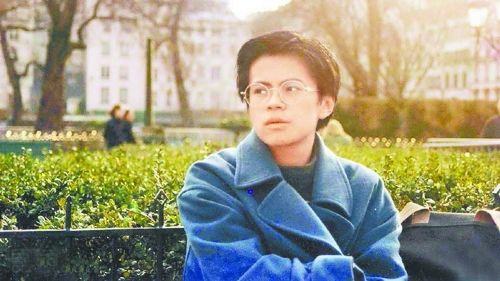'Notes of a Crocodile' leaves room for imagination
- By Jie Xi
 0 Comment(s)
0 Comment(s) Print
Print E-mail China.org.cn, August 17, 2017
E-mail China.org.cn, August 17, 2017
Originally published in 1994 – although an English translation wasn't available until earlier this year – "Notes of a Crocodile" is the first novel by Qiu Miaojin, an outspoken lesbian writer who was born in Changhua County, Taiwan. The book also, due to her suicide at the age of 26 in 1995, makes up half of her novelistic oeuvre; her second and final novel, "Last Words from Montmartre," wasn't released until after her death.
|
Qiu Miaojin [File photo] |
The tragic specifics of Qiu's life (which the reader will likely be familiar with, as they're included in the book's author-biography) mean that one begins reading "Note of a Crocodile" with some expectations – and, indeed, these expectations are quickly met. The book's narrator, who goes by the nickname Lazi, is a self-hating, sexually conflicted young woman who sometimes carries out acts of self-harm. To quote just one passage that demonstrates the narrator's general attitude towards life: "…every time I fight my way out, the outside world just blocks my path again. It never gets better. I'm constantly on the border of life and death, waiting for something to come along and push me over the edge."
The story more or less chronologically follows Lazi's time at college, which coincides with her personal development. The book's main conflict is Lazi's reluctance to fully accept herself as what she's long known herself to be: a lesbian. At the heart of this conflict is Shui Ling – a female student slightly older than Lazi – and the back and forth, ever-tumultuous relationship she and Lazi share. Though they're powerfully attracted to one another, Lazi continually pushes Shui Ling away, and their failure to achieve a steady, enduring connection is a source of great pain for both of them. Ling appears at intervals throughout the book, but precious little is ever resolved in their relationship.
Most of the book's other principal characters come in pairs. First there's Meng Sheng and Chu Kuang, two young gay males, whose off-and-on relationship isn't dissimilar to Lazi's and Shui Ling's. And then there are Tun Tun and Zhi Rou, two female students – younger than Lazi and who also form a messy romantic pair – that Lazi feels an immediate affinity for and takes under her wing.
And finally, there's Xiao Fan, a woman five years Lazi's senior. Near the end of the story Lazi moves in Fan to her home, and Fan helps bring Lazi towards the climax of her personal development.
Also, somewhat intriguingly, Lazi's story is interspersed with short, imaginative chapters chronicling the public's increasing interest in literal crocodiles, whose experience is meant to stand-in for society's bemusement vis-à-vis lesbians.
"Notes of a Crocodile" is at its best when the narrator is reflecting on her inner turmoil. Qiu was only in her early 20's when she wrote the book, but at times she demonstrates a level of social and psychological awareness rarely found in someone so young. The book also does a good job of creating an atmosphere of isolation, one that effectively mirrors the inner, and oftentimes outer, life of Lazi: "The piano melody of ‘Thanksgiving' played in my head, putting me in a meditative mood as I took a few soft drags from a cigarette and reflected on the five years that had passed since I'd left home for Taipei. People had come into my life and left without a trace. Late at night, I sat in a desolate corner of the city, dispatching lone smoke signals."
But, overall, the story lacks drive. There's not much of a plot (which isn't necessarily a problem, as there are many things that can keep a reader's attention besides a plot), and Shui Ling's repetitive appearances aren't distinctive enough to make them enjoyable. It's hard to read "Notes of a Crocodile" and not consider the possibility that it's more or less drawn directly from Qiu's life – and drawing too much from one's own life is usually a guaranteed way to make the reader feel as if you're being self-indulgent.
Also, for every line of beyond-her-years psychological insight, there's at least one or two that betray Qiu's youth. For instance: "The professor stopped lecturing, and all the other sheep turned and gawked at me and my antics." Rare is the self-obsessed teenage or twenty something budding artist who doesn't think of most of her peers as "sheep."
Ultimately, the book would have been better if it was shorter and if Qiu had used a bit more imagination to liven up the story. "Notes of a Crocodile" may have had great social relevance at its time, but today it's hard to overlook its literary shortcomings.







Go to Forum >>0 Comment(s)